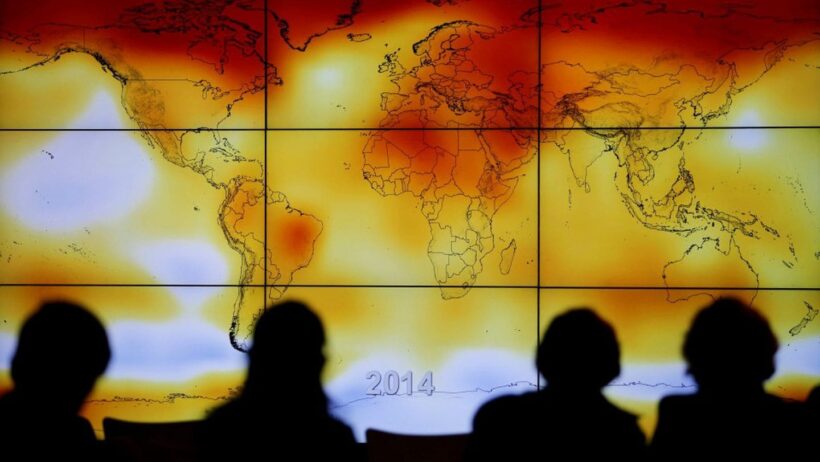Every few years, the question re-emerges: are we on track to avert the catastrophic impacts of global warming, or are we, conversely, accelerating toward an irreversible collapse of our ecosystems? It’s an urgent inquiry, one that requires not just introspection but a robust examination of scientific principles, socio-economic factors, and policy implications. This exploration poses a vital challenge. Can humanity summon the resolve and coherence needed to implement effective climate solutions, or are we merely projecting a mirage of progress?
To adequately address this question, it is necessary first to understand the context of global warming. Defined as the rise in Earth’s average surface temperature due to human-induced greenhouse gas emissions, it chiefly results from the combustion of fossil fuels, deforestation, and industrial processes. The consequences of inaction have already begun to manifest: extreme weather events, biodiversity loss, and rising sea levels are not mere specters of the future; they are realities that are reshaping our present.
Current scientific consensus posits that limiting global warming to 1.5 degrees Celsius above pre-industrial levels is essential to mitigate the most severe effects of climate change. However, the Intergovernmental Panel on Climate Change (IPCC) has presented alarming projections stating that we are on a trajectory that could result in increases of 2 to 3 degrees Celsius by the end of the century. Such temperature rises could lead to devastating impacts on agriculture, water supplies, and natural ecosystems.
The first question that arises is: what ongoing efforts are in place to combat these dire predictions? Across the globe, various initiatives seek to curb carbon emissions. The Paris Agreement, ratified in 2016, aims to unite countries in a common cause, with commitments to limit global temperature increases. Numerous nations have pledged to achieve net-zero emissions by mid-century. However, a critical assessment reveals that many countries are falling short of their targets, and the gap between necessary and actual reductions is widening.
In addition to international cooperation, local and national policies play a pivotal role. Investments in renewable energy—such as solar, wind, and hydroelectric power—are crucial in this battle against climate change. Transitioning from fossil fuels to cleaner alternatives is not merely a desirable goal; it is an imperative. Yet, the fossil fuel industry’s continued dominance presents a formidable obstacle. The interplay between economic interests and environmental stewardship creates a complex landscape of resistance and advocacy.
Moreover, technological advancements in carbon capture and storage, alongside innovative battery storage solutions, promise considerable advancements. However, the implementation of these technologies often lags behind expectations due to high costs and regulatory challenges. The question thus arises: are we failing to cultivate the necessary momentum in technology and infrastructure to meaningfully address global warming?
Turning to public sentiment, one must hasten to acknowledge the psychology of climate action. Public awareness and urgency regarding climate change are growing. However, apathy and a sense of hopelessness remain prevalent. The “climate anxiety” phenomenon has necessitated a nuanced approach to climate communication, emphasizing not only the inherent dangers but also the solutions and empowerment available to individuals and communities. This leads to a significant query: how do we instill optimism and a collective will to act in the face of daunting challenges?
Education emerges as a critical avenue for fostering climate engagement. By incorporating climate science into curriculums, young generations can become informed advocates for sustainable practices. This approach is not merely instrumental; it also embraces the ethical dimensions of stewardship and responsibility toward future generations. Are we adequately preparing our youth to grapple with and mitigate the challenges posed by climate change?
Additionally, the incorporation of indigenous knowledge systems, which have thrived in sustainable practices for centuries, presents an intriguing opportunity to redesign our ecological paradigms. Collaborative governance models that include indigenous voices and prioritize traditional ecological knowledge can foster resilience and adaptability in climate policies. Hence, it begs the question: how can we expand our frameworks of understanding to embrace these traditions?
The challenge of equitable climate policies looms large. Developing nations, often the least responsible for emissions yet the most vulnerable to climate impacts, face unique hurdles. Climate justice issues surface, demanding that wealthier nations provide necessary financial and technological support. The concept of “loss and damage” must materialize into tangible action and compensation for those adversely affected by climate events. Hence, how can global partnerships evolve to facilitate better support for these vulnerable populations?
Nonetheless, hope persists amid these challenges. Local movements, grassroots campaigns, and climate action strikes spearheaded by youth activists illustrate a stirring social movement advocating for accountability and change. The momentum garnered from such initiatives can potentially catalyze broader political will. So, this leads us to reflect: can collective action and grassroots mobilization reshape the trajectory of climate policy?
In conclusion, the question remains: are we on track to avert global catastrophe or are we speeding toward collapse? The answer is multifaceted and requires the confluence of policy reform, technological advancement, public engagement, and international cooperation. While the daunting evidence may provoke despair, the pursuit of innovative solutions can spark hope. There exists a potential to alter our course and create a resilient, sustainable future—not just for us, but for the generations to come. The choices made today will dictate the reality of tomorrow, urging society to rise to the occasion and confront the climate crisis with relentless determination.








